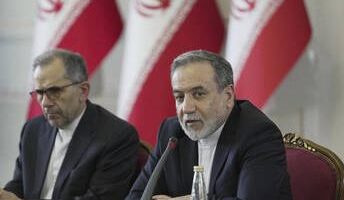Saudi Arabia rejects US Senate interference in kingdom’s affairs

RIYADH, DEC 17 (DNA) – Saudi Arabia has rejected as “interference” a US Senate resolution to end American military support for a Riyadh-led war in Yemen, and another holding its crown prince responsible for the murder of Saudi journalist Jamal Khashoggi.
“The Kingdom of Saudi Arabia rejects the position expressed recently by the United States Senate, which was based upon unsubstantiated claims and allegations, and contained blatant interferences in the Kingdom’s internal affairs, undermining the Kingdom’s regional and international role,” according to Saudi statement.
“The Kingdom hopes that it is not drawn into domestic political debates in the United States of America, to avoid any ramifications on the ties between the two countries that could have significant negative impacts on this important strategic relationship.”
On Thursday, the US Senate passed a resolution calling for an end to American military support to the Saudi-led coalition in the Yemen war, and asserted Congress’s right to decide on matters of war and peace.
The measure, which passed by 56 votes to 41, marked the first time the Senate had invoked the 1973 War Powers Resolution to seek to curb the power of the president to take the US into an armed conflict.
It marked a significant bipartisan rebuke to the Trump administration, which lobbied intensively against it.
Though largely symbolic, the US Senate’s vote on Thursday dealt a fresh warning to President Trump, who has staunchly backed the Saudi regime, despite global uproar over the Yemen conflict and the murder of journalist Khashoggi.
The Senate also approved a resolution condemning Khashoggi’s murder and calling Crown Prince Mohammed bin Salman, Saudi Arabia’s de facto ruler, “responsible” for it.
The passing of the bipartisan resolution was seen as a symbolic gesture reflecting lack of confidence in Trump’s handling of policy towards Yemen and Saudi Arabia, and in particular his personal support for Crown Prince Mohammed bin Salman.
The Saudi ministry warned that the kingdom would not tolerate any “disrespect” of its rulers.
“This position by the US Senate sends the wrong messages to all those who want to cause a rift in Saudi-US relationship,” the ministry said.
“The kingdom hopes that it is not drawn into domestic political debates in the US to avoid any … significant negative impact on this important strategic relationship.”
The Senate resolution acknowledged the US-Saudi ties were “important” but called on Riyadh to “moderate its increasingly erratic foreign policy”.
The resolutions cannot be debated in the House of Representatives before January, and would likely be vetoed in any case by Trump.
But the Senate votes send a strong message to the White House over anger on both sides of the aisle towards Riyadh.
Khashoggi, a Saudi contributor to the Washington Post, was killed on 2 October shortly after entering the kingdom’s consulate in Istanbul in what Riyadh called a “rogue” operation.
The murder has tarnished Riyadh’s international reputation, and Western countries including the United States, France and Canada have placed sanctions on nearly 20 Saudi nationals.
UN chief Antonio Guterres on Sunday called for a “credible” probe into the murder.
Anger at the human cost of the war in Yemen has also prompted a harder line in Congress about the US military’s role in backing Saudi-led coalition strikes against Huthi rebels.
Since the coalition launched its campaign in 2015, the conflict has killed nearly 10,000 people, according to the World Health Organization. But some rights groups believe the toll to be far higher.
Related News

Zionist regime seeks to weaken Islamic world, says President Pezeshkian
TEHRAN, JUL 14 /DNA/ – President Dr. Masoud Pezeshkian stressed that the Zionist regime seeksRead More

Iran says ‘no specific date’ for US nuclear talks
TEHRAN, JUL 14 (AFP/APP):Iran said Monday it had “no specific date” for a meeting withRead More


Comments are Closed